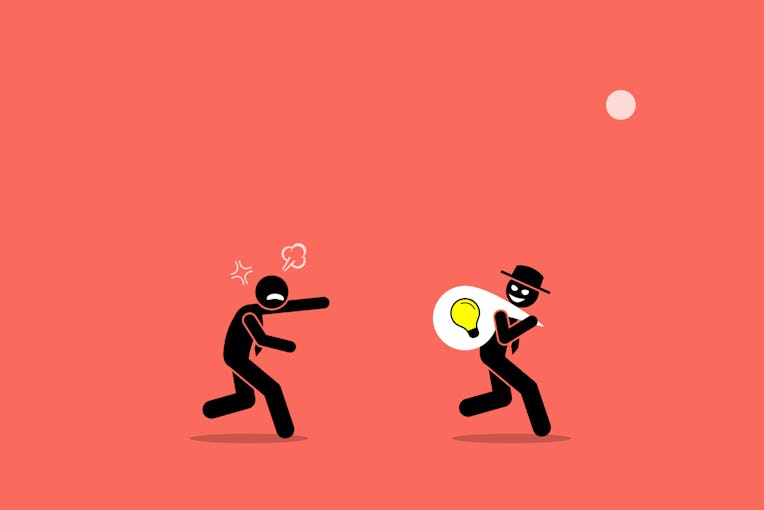LitHub Essay About Plagiarism Looks Very Plagiarized
The essay, by Jumi Bello, was pulled offline shortly after its publication

This morning, LitHub published an essay titled “I Plagiarized Parts of My Debut Novel. Here’s Why.” The first-person account was from fiction writer Jumi Bello and detailed how her debut release, The Leaving, was canceled by its publisher Riverhead after they learned that sections had been plagiarized.
According to Publisher’s Lunch, which reported on the cancellation in February, the book about “a young Black woman dealing with an unexpected pregnancy” had appeared on “multiple anticipated lists.” In her essay, Bello claimed she came clean about lifting lines from other writers, losing the book deal in the process (the book was scheduled to come out in July).
Bello’s essay explored the origins of plagiarism and her specific experience with it, which she tied indirectly to a history of mental illness. After a stay in a psychiatric ward and an allergic reaction to an antidepressant, Bello found herself pressed to deliver on her manuscript: “I just want to get through it, to a place where I can sleep again. Looking back on this moment, I ignored my instincts. I ignored the voice inside that said quietly, this is wrong wrong wrong.”
By mid-morning Monday, however, the article had been removed. It now loads to an error page.
LitHub did not immediately return Gawker’s request for comment, and neither Bello’s website nor her Twitter profile include contact information. But the writer Kristen Arnett, a fellow Riverhead author, noted on Twitter that parts of the text about plagiarism’s etymological origins appeared to closely resemble other articles on the history of plagiarism.
The removal happened so soon after the article first published that it was not even archived by the WaybackMachine. But in a PDF version of the piece, you can see the similarities. In Bello’s article, for example, she wrote the following:
Plagiarism has been with us since the birth of language and art. For as long as there have been words to be read, there has been someone there copying the passages. It goes as far back as 8 AD with the poet Martial who caught another poet Fidentinus reciting his work. He called Fidentinus a plagiarus, meaning a “kidnapper.”
Compare that to this 2011 article in Plagiarism Today, titled “The World’s First ‘Plagiarism’ Case.”
Plagiarism, the act of taking another’s work and passing it off as your own, has almost certainly been with us since the dawn of artwork and written language. For as long as there has been art and artists, there have been people who have put their name to it incorrectly.
But while the act of plagiarism is as old as time, the word “plagiarism” is not. The etymology of the word plagiarism is an interesting one and its history actually dates back to the first century AD and involves a Roman poet and his literary “kidnappers” who became the subject of a literary beating.
Or look at another version from the plagiarism detection site, Turnitin. Their 2019 blog, “5 Historical Moments That Shaped Plagiarism” begins like this:
Plagiarism has almost certainly been with us since the dawn of language and art. For as long as there have been words to repeat and art to copy, it stands to reason someone was doing so.
And later:
In one of those verses, Martial referred to Fidentinus as a “plagiarus,” essentially calling him a kidnapper.
In fairness to Bello, the Turnitin lede sure sounds a lot like Plagiarism Today’s piece, which was written eight years earlier. But I guess that plagiarism has been with us since the birth of language and art, and for as long as there have been words to be read, there has been someone there copying the passages.
Update, 2 p.m.: After this piece first published, LitHub put out a statement about the retraction. They removed the “very personal essay” because of “inconsistencies in the story and, crucially, a further incident of plagiarism in the published piece.” So there you have it. LitHub did not specify what the precise “inconsistencies” were. But if you know, drop us a line at tips@gawker.com.
Update, 5/11: Jonathan Bailey, the blogger behind Plagiarism Today, contacted Gawker to explain that the resemblance between his blog’s 2011 post and the 2019 Turnitin post stems from the fact that he wrote both. Bailey briefly guest blogged for Turnitin; the post appeared un-bylined.